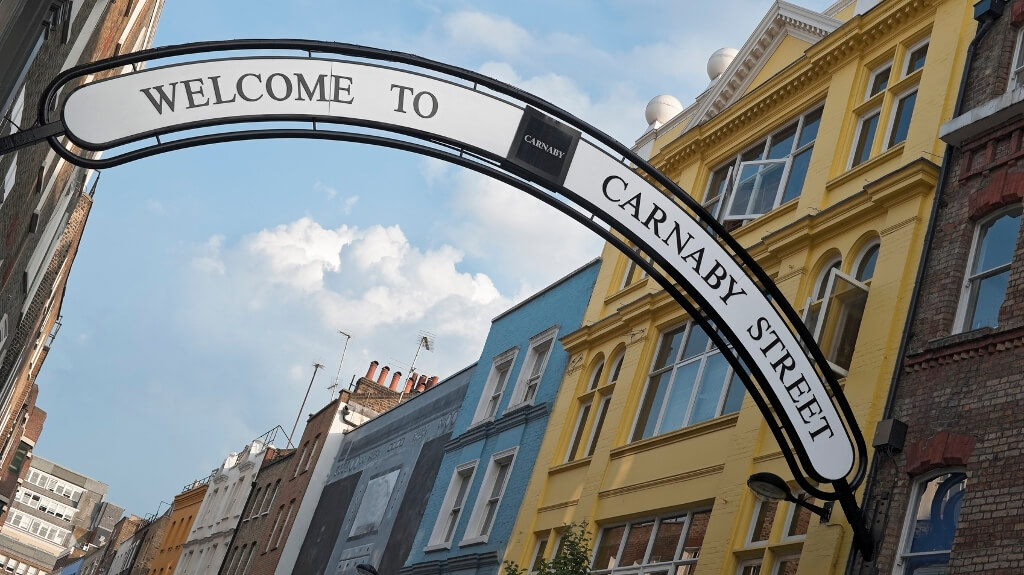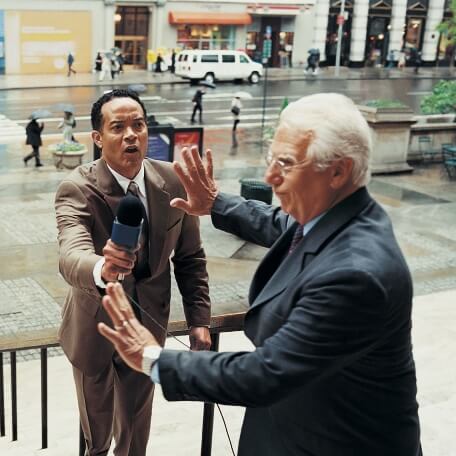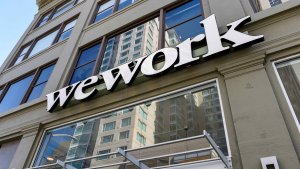James Barnett and Jonathan Masri, founders of WorkPad, explain how they create high-end workspaces in central-London hotspots and why co-working isn't all it's cracked up to be.
How WorkPad Went From £0 To £2m In Two Years
James Barnett and Jonathan Masri, founders of WorkPad, explain how they create high-end workspaces in central-London hotspots and why co-working isn't all it's cracked up to be.

In two years, managed office space provider Workpad has developed multiple locations across London and created sales of more than £2 million. But soaring rental prices for prime London real estate and business rates through the roof means building the business will not be plain sailing in future.
What's the business?
James Barnett: WorkPad provides boutique office space in key central London locations to companies ranging in size from one to ten people. Importantly, though, we are more than just a landlord – we provide a luxury product bespoke to a particular business niche.
All our buildings are period and we try as much as possible to maintain their original charm and character, which perfectly fits in line with our locations.
Jonathan Masri: We also provide a convenience. Everything in our offices is included and set up prior to a customer moving in, so companies can simply arrive, plug-in their laptops and they’re ready to work
Where did you get the idea?
Jonathan Masri: The idea of the business initially stemmed from trying to find an office for ourselves for a previous business. The complexities of finding and securing a traditional office lease are immense, time consuming and overly complex for someone who is not well versed in the property market.
Suitable space is scarce, leases are generally overly complicated, and if not careful, a tenant can end up over exposed to the landlord.
Once you have gone over these hurdles and are in an office, you need to sort out cleaning, internet and connectivity, furniture, decorating, business rates, utilities, service charges etc, all of which can be detrimental to the focus required on actually running your business.
As such, we started WorkPad in September 2013 with one co-working site on Lexington Street. It was a very cool space and we had a lot of up-and-coming companies and individuals in that office, which meant we learned how to deal with a variety of different businesses and individual requests.
Why did you think there would be demand?
Jonathan Masri: With the way the economy is going, there is an increasing trend of young individuals and graduates starting their own businesses, as opposed to following the traditional route of working in a bank or law firm.
This trend has led to a great increase in demand for serviced offices where companies can walk into a fully functioning office and start working straight away.
In addition to this, there is demand for companies to be based in period buildings, with small rooms, but importantly in central London locations.
Another reason why demand is growing is the dramatic increase in rental prices. Many companies who traditionally lease large buildings on a long-term basis no longer see this as a viable option. The serviced office market, with short-term leases, and all inclusive packages has become far more attractive.
More interviews:
Ben Atkinson-Willes: How My Grandad's Dementia Inspired My Start-Up
Social Chain's Steve Bartlett: Spread The Word
ZipJet: Redemption From The Weekly Wash
Plot the growth story to today.
Jonathan Masri: We noticed there was a growing demand across the economy from small start-ups of this size that wanted to be in central London. We started off with a co-working centre on Lexington street. Since then, in over two years we have grown to seven central London locations.
We originally started off attracting small one or two-person companies. We now target companies of around four to seven people, who are generally based in the IT and PR sectors. Focusing the business on this niche has allowed us to expand and grow the portfolio and we are just about to take on our seventh property.
James Barnett: As we’ve grown the portfolio, we have also grown the team – we have eight members of staff with a turnover in excess of £2 million.
Is there a big opportunity in office space?
James Barnett: We are operating in an increasingly crowded market place and in order to succeed, you have to stand out in whatever way works for your company. It is crucial to carve out a niche in order to meet specific demand.
When setting up WorkPad, we didn’t want to go down the route of traditional operators or the new style of co-working following in the footsteps of big players.
We wanted to do it better and be different to how people "think" that they should be in the industry, focusing on the customer service and high end product, rather than giving companies office space and just letting them get on with it.
Jonathan Masri: There is an opportunity as there is a huge desire for companies to be in central London and be around like-minded companies. Location can play a huge part in helping to drive growth in a business; it’s good for a brand and good for image.
From our own business perspective we have recently launched a new location, Carnaby Street, and in 2016 we have a target of securing another four locations, so we’ll aim to have ten plus properties in the portfolio. Currently we’re in Soho (pictured above), Covent Garden and Marylebone and we’re also looking to move into Fitzrovia very soon.
What have been the major bumps in the road and how have you overcome them?
James Barnett: The prices of properties are continually rising in London – in the three year period since we set up the first WorkPad office in Soho, we have seen a 250% increase in rents.
This, coupled with business rates going up dramatically – in line with current rental prices – has made the cost for companies to traditionally lease a building in central London astronomical and this will eventually be unfeasible for many businesses.
This works both in our favour and against us. We hope rental prices won’t go up too much further as this will force us to put our costs up, but at the same time it makes our proposition more attractive both to customers and landlords.
Landlords have also traditionally been averse to taking on serviced offices or co-working businesses. However, Landlords are increasingly finding it difficult to fill their properties because their rents are too high, while companies can’t afford to rent property because the rents are too high.
We’re therefore matching the landlords with a specific market, whilst offering companies a flexibility that they don’t get with a traditional lease.
How have you marketed the business?
Jonathan Masri: We have placed a huge emphasis on our broker relationships, which have returned excellent results. On top of this we are using a number of digital channels such as Google ad words, Facebook, Gumtree, and also referrals from our current customers.
Another key factor that has allowed us to grow quite rapidly is customer retention; we have very good customer loyalty. Once companies sign on with us they rarely leave; they either retain the same office space or grow within our portfolio and those that have left have been because they’ve outgrown their office space.
What the hardest thing about running your own business and what makes it fulfilling?
Jonathan Masri: When we started the business it was just James and I and we were completely hands on; we had to do everything. That was fine as we had defined roles – James was more focused on the finance and legal sides of the business, whereas I handled the operations and customer service – but we would always pitch in in each other’s roles.
As we have hired additional staff but remained a close-knit team, the temptation is to do the same but we’re conscious of not wanting to micro-manage.
The biggest challenge has been defining those different roles for everyone and limiting the cross-over from other areas of the business. So, while we want our staff to be hands on, we also want to give people specific roles within the business, so we can be as productive and as efficient as possible.
James Barnett: The fulfilling part is when it all comes together and works and you see happy customers. That is when you say to yourself, “We did that, we feel proud we did that and we want to do more of that”.
What one thing would you change about doing business in the UK?
James Barnett: I believe the UK is probably the best place to do business in the world. If I had to pick one thing it would be learning to wisely navigate politics and red tape.
What is your biggest mistake?
Jonathan Masri: We have managed to avoid making any huge mistakes to date but if we could offer advice to other companies it would be to not attempt to grow too quickly or you can lose sight of the core of the business – for us this is making sure our customer service is top-rate. Keep the foundations of the business in the forefront of your mind or it can fall down around you.
How you developed your staff?
James Barnett: Recruitment has been a mixture of trial and error, pro-active recruitment and being approached by individuals. One of the team phoned us up out of the blue, came round the same day and we hired him there and then but it hasn’t all been that straight-forward.
Jonathan Masri: We think it is very important to let our team members develop their own skills and to naturally grow their skill base within their own environment. We actively encourage entrepreneurialism and allow our team to explore their own ideas and to put their own stamp on their roles.
How do you rate government support for growing businesses and why?
Jonathan Masri: I think the government often forgets that London is different to the rest of the UK. Whilst there are huge incentives and help for small businesses and politically they make a real song and dance about it, the reality is that a lot of the time the reliefs and breaks are often of little significance for a company looking to grow, particularly when it comes to London.
What are your top three tips for people starting a business today?
1. Have a clear vision and believe in your product.
2. Don’t loose track of your identity and never lose sight of the bigger picture.
3. Ensure your customer service improves instead of diminishing as you grow.
Thanks for signing up to Minutehack alerts.
Brilliant editorials heading your way soon.
Okay, Thanks!





